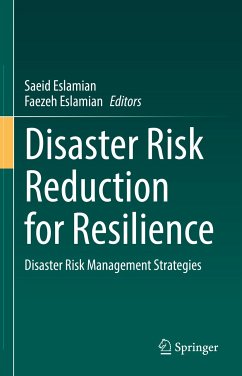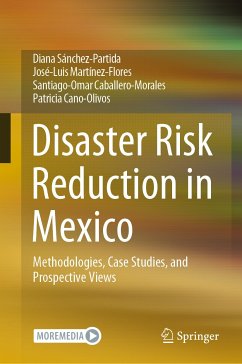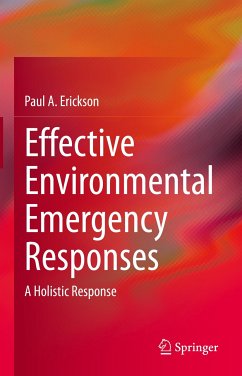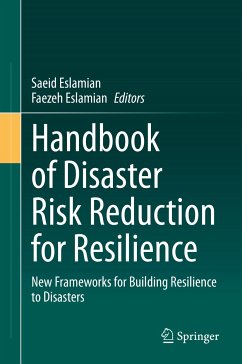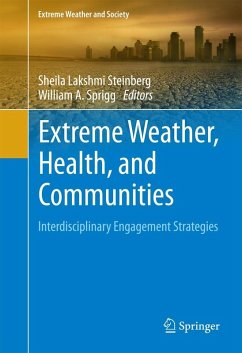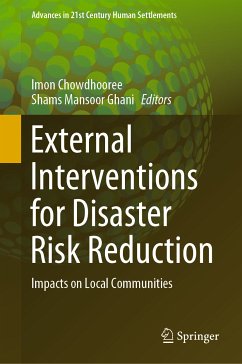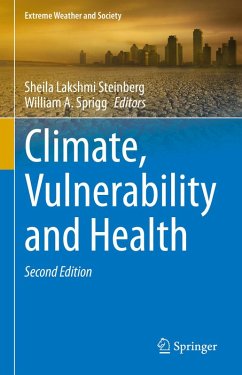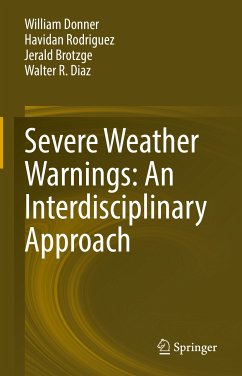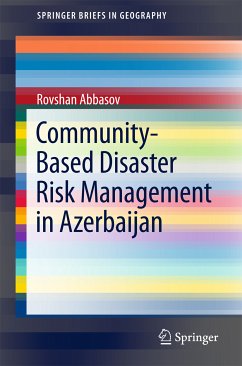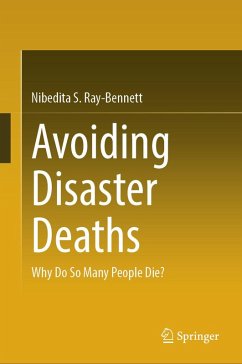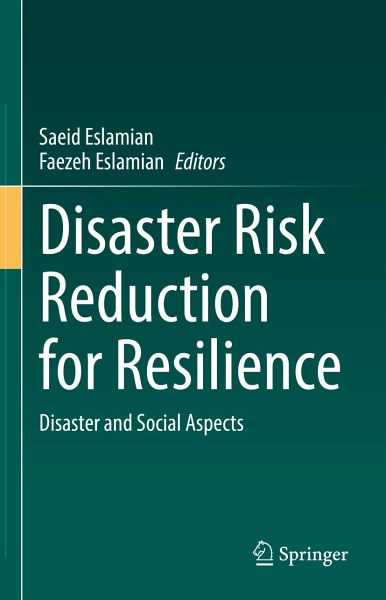
Disaster Risk Reduction for Resilience (eBook, PDF)
Disaster and Social Aspects
Redaktion: Eslamian, Saeid; Eslamian, Faezeh
Versandkostenfrei!
Sofort per Download lieferbar
Statt: 160,49 €**
112,95 €
inkl. MwSt.
**Preis der gedruckten Ausgabe (Gebundenes Buch)
Alle Infos zum eBook verschenkenWeitere Ausgaben:

PAYBACK Punkte
56 °P sammeln!
This book is part of a six-volume series on Disaster Risk Reduction and Resilience. The series aims to fill in gaps in theory and practice in the Sendai Framework and provides additional resources, methodologies, and communication strategies to enhance the plan for action and targets proposed by the Sendai Framework. The series will appeal to a broad range of researchers, academics, students, policy makers, and practitioners in engineering, environmental science, geography, geoscience, emergency management, finance, community adaptation, atmospheric science and information technology.This volu...
This book is part of a six-volume series on Disaster Risk Reduction and Resilience. The series aims to fill in gaps in theory and practice in the Sendai Framework and provides additional resources, methodologies, and communication strategies to enhance the plan for action and targets proposed by the Sendai Framework. The series will appeal to a broad range of researchers, academics, students, policy makers, and practitioners in engineering, environmental science, geography, geoscience, emergency management, finance, community adaptation, atmospheric science and information technology.
This volume provides a holistic approach to developing disaster risk reduction strategies and policies, exploring the most effective ways to integrate physical and social science aspects of hazard resilience to better inform local populations. This risk-based approach to community resilience development is used to craft a collaborative system for crisis management, and allows for the implementation of nationally determined contributions (NDCs) through social innovation and community engagement to enhance community emergency response support and preparedness. Readers will also learn about education of disaster risk reduction, human health risk assessment, gendered perspectives in disaster response, recovery, and disaster management legislation.
This volume provides a holistic approach to developing disaster risk reduction strategies and policies, exploring the most effective ways to integrate physical and social science aspects of hazard resilience to better inform local populations. This risk-based approach to community resilience development is used to craft a collaborative system for crisis management, and allows for the implementation of nationally determined contributions (NDCs) through social innovation and community engagement to enhance community emergency response support and preparedness. Readers will also learn about education of disaster risk reduction, human health risk assessment, gendered perspectives in disaster response, recovery, and disaster management legislation.
Dieser Download kann aus rechtlichen Gründen nur mit Rechnungsadresse in A, B, BG, CY, CZ, D, DK, EW, E, FIN, F, GR, HR, H, IRL, I, LT, L, LR, M, NL, PL, P, R, S, SLO, SK ausgeliefert werden.



